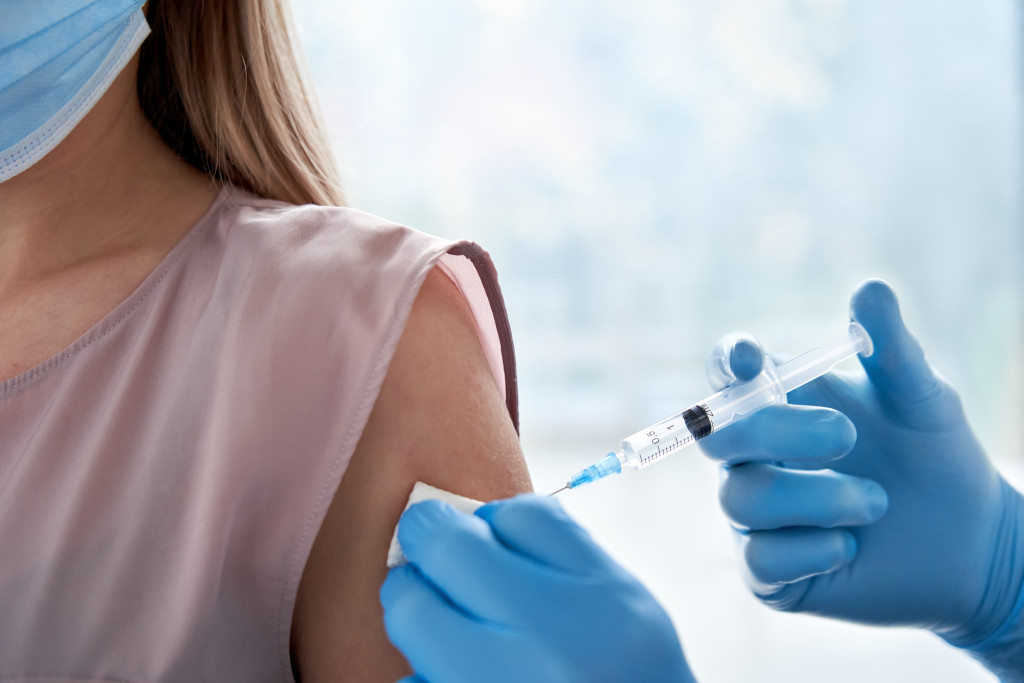
- Basic safety protocols, including good hygiene, wearing masks, and social distancing, are essential in protecting your family from COVID-19.
- Regularly disinfecting frequently touched surfaces and setting up a home cleaning station can add an extra layer of protection.
- Timely and reliable pediatric urgent care COVID-19 testing is crucial when children show symptoms of the virus.
- Staying informed with the latest information from reliable sources ensures effective navigation during this health crisis.
As the COVID-19 pandemic continues to loom over people's lives, keeping families safe from this infectious disease has become a top priority. As a parent, you may be feeling anxious about how to protect your loved ones. This article will provide you with some valuable tips to help safeguard your family from COVID-19.
Follow The Basic Safety Protocols:
The most important step you can take to protect your family from the virus is to follow the basic safety protocols. This includes the following:
Practice Good Hygiene:
Encourage your family members to practice good hygiene by washing their hands frequently with soap and water for at least 20 seconds. If soap and water are not available, use an alcohol-based sanitizer. Avoid touching your face, especially your mouth, nose, and eyes, as these are entry points for the virus.
Wear Masks:
To ensure the safety of your family and those around you, it is crucial that everyone wears a mask when in public places or in the presence of individuals who do not reside in your household. By wearing masks, you can significantly reduce the risk of inhaling infected droplets from others, thereby helping to prevent the spread of the virus and safeguarding the well-being of your loved ones. Let's all do our part to protect each other and maintain a healthier environment for everyone.
Social Distancing:
To practice social distancing, it is recommended to maintain a minimum distance of 6 feet (or approximately 2 meters) from others when in public places. This helps to minimize the risk of spreading infectious diseases. It is also advisable to avoid crowded areas and gatherings, such as parties or events, where maintaining physical distance may be challenging. By following these precautions, we can contribute to safeguarding our health and the well-being of our community.

Disinfect Surfaces:
Clean and disinfect frequently touched surfaces in your home, such as doorknobs, handles, and countertops. Use products approved by the Environmental Protection Agency (EPA) that are effective against COVID-19. Here are some other tips:
Wear Gloves When Cleaning and Handling Dirty Items:
To protect your skin and prevent the direct spread of the virus, it's advised to wear disposable gloves when cleaning and handling items that are dirty or possibly contaminated. After each use, dispose of the gloves immediately and adequately wash your hands with soap and water.
Follow Product Label Instructions:
When using chemical products for cleaning and disinfection, make sure to read and follow the instructions on the product labels. These instructions provide details about safe and effective use, which include precautions you should take when applying the product, like wearing gloves and making sure to have proper ventilation during use.
Set Up a Cleaning Station:
Consider setting up a designated cleaning station at your home for items and people coming from outside. This could be a space where you disinfect groceries, parcels, or any items brought from out before they enter the central area of your home. It could also serve as a place where family members can sanitize their hands and change clothes after returning from outside. This practice can add an extra layer of protection against the virus.

Get Tested:
If someone in your family is exhibiting symptoms of COVID-19, such as fever, cough, or difficulty breathing, consult with your healthcare provider and seek testing for the virus. More efficient pediatric urgent care COVID-19 testing is available for those under 18 years old who are experiencing symptoms.
Have a plan beforehand so that you know what to do if any family member starts to show signs of the virus. For instance, you can create an isolation room in your home for family members who are suspected to have contracted the virus.
This will help minimize contact with other members of the household and reduce the risk of spreading the infection. It's also advisable to stay up to date with the latest information about COVID-19 from reputable sources, such as the Centers for Disease Control and Prevention (CDC) and the World Health Organization (WHO). Follow any guidelines or recommendations set forth by your local health department.
The COVID-19 pandemic has brought unprecedented challenges to families worldwide. Protecting your loved ones from the virus requires diligence in following safety protocols, from practicing good hygiene and social distancing to wearing masks and regular disinfection. Timely and efficient testing is crucial, especially for children showing symptoms. Stay informed and updated with guidance from reliable health authorities to navigate this health crisis effectively and keep your family safe.








